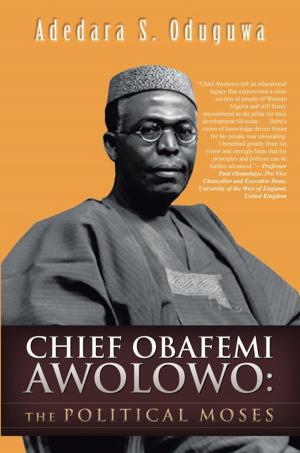| Author: | Ünsal Umdu Topsakal | ISBN: | 9781490779911 |
| Publisher: | Trafford Publishing | Publication: | January 30, 2017 |
| Imprint: | Trafford Publishing | Language: | English |
| Author: | Ünsal Umdu Topsakal |
| ISBN: | 9781490779911 |
| Publisher: | Trafford Publishing |
| Publication: | January 30, 2017 |
| Imprint: | Trafford Publishing |
| Language: | English |
This book contains eight chapters that analyze and discuss different themes and topics about new educational trends in Turkey. Chapter 1 discusses the new methodological trends in higher education of Turkey. Several factors including the dynamism of internationalization having gained momentum with globalization, increasing demand on higher education, life-long learning routines, transnational student mobility, newer higher education providers, and increasing market-focused competition have affected not only the educational system in general but also institutions of higher education specifically. Chapter 2 presents STEM education, which is accepted as one of the biggest educational movements in the last decade. It is a multidisciplinary, holistic approach, which aims to train students integrally in science, technology, engineering, and mathematics disciplines. Chapter 3 introduces the socioscientific issues (SSI). Socioscientific issues are dilemmas about the environment, health, technology, and science and associated with both society and science, concerning both moral and ethical issues. Chapter 4 focuses on model-based science education: the case of Turkey. Models have crucial roles in the practice of science. In this chapter, it is given that models and modeling in science education, mental models, conceptual models, computer-based models, and model-based learning as a theoretical framework. Furthermore, some studies done about teaching science through MBL in Turkey were given as examples. Chapter 5 examines science literacy in Turkey. Science and technology are the most important indicators of improvement that countries achieved. In this century, societies have started competing against each other to be the leading country in science and technology. This chapter also discusses definition of science literacy and types of science literacy studies. Turkey is in a struggle on the international competition of science literacy appreciation by public, which is an ultimate indicator of the level of development. In Chapter 6, the studies partaking in the literature about Artificial Neural Networks (ANN) and the use of ANN in predicting academic success have been discussed, especially those done in Turkey. Besides the study principles of ANN, its preferability reason for prediction has been mentioned. The other studies in which ANN is used to estimate the academic success in the field of education have also been included. Compared to other methods, presenting the successful predictions of ANN applications is considered to cause ANN to be used more common. Chapter 7 discusses the place of SOLO model in mathematics education. SOLO model can be used for evaluating students cognitive knowledge. In this chapter, research in mathematics education in which SOLO model was used is also mentioned. In recent years, interest in mathematics education research about SOLO model has started to increase in Turkey. Chapter 8 focuses on problem posing in Turkish mathematics education. Problem posing, which teaching mathematics researchers have frequently emphasized in recent years, includes either posing new problems in terms of a given situation or reformulating the problem. In curriculums, while problem posing is widely used at primary school level, the importance given for problem posing has become less as the levels increased. Problem posing from Turkeys perspective can be said that teachers started to use activities for problem posing together with the shift to the constructivist teaching model in Turkish education system in 2005. In this chapter, it is also discussed that studies about problem posing in mathematics education.
This book contains eight chapters that analyze and discuss different themes and topics about new educational trends in Turkey. Chapter 1 discusses the new methodological trends in higher education of Turkey. Several factors including the dynamism of internationalization having gained momentum with globalization, increasing demand on higher education, life-long learning routines, transnational student mobility, newer higher education providers, and increasing market-focused competition have affected not only the educational system in general but also institutions of higher education specifically. Chapter 2 presents STEM education, which is accepted as one of the biggest educational movements in the last decade. It is a multidisciplinary, holistic approach, which aims to train students integrally in science, technology, engineering, and mathematics disciplines. Chapter 3 introduces the socioscientific issues (SSI). Socioscientific issues are dilemmas about the environment, health, technology, and science and associated with both society and science, concerning both moral and ethical issues. Chapter 4 focuses on model-based science education: the case of Turkey. Models have crucial roles in the practice of science. In this chapter, it is given that models and modeling in science education, mental models, conceptual models, computer-based models, and model-based learning as a theoretical framework. Furthermore, some studies done about teaching science through MBL in Turkey were given as examples. Chapter 5 examines science literacy in Turkey. Science and technology are the most important indicators of improvement that countries achieved. In this century, societies have started competing against each other to be the leading country in science and technology. This chapter also discusses definition of science literacy and types of science literacy studies. Turkey is in a struggle on the international competition of science literacy appreciation by public, which is an ultimate indicator of the level of development. In Chapter 6, the studies partaking in the literature about Artificial Neural Networks (ANN) and the use of ANN in predicting academic success have been discussed, especially those done in Turkey. Besides the study principles of ANN, its preferability reason for prediction has been mentioned. The other studies in which ANN is used to estimate the academic success in the field of education have also been included. Compared to other methods, presenting the successful predictions of ANN applications is considered to cause ANN to be used more common. Chapter 7 discusses the place of SOLO model in mathematics education. SOLO model can be used for evaluating students cognitive knowledge. In this chapter, research in mathematics education in which SOLO model was used is also mentioned. In recent years, interest in mathematics education research about SOLO model has started to increase in Turkey. Chapter 8 focuses on problem posing in Turkish mathematics education. Problem posing, which teaching mathematics researchers have frequently emphasized in recent years, includes either posing new problems in terms of a given situation or reformulating the problem. In curriculums, while problem posing is widely used at primary school level, the importance given for problem posing has become less as the levels increased. Problem posing from Turkeys perspective can be said that teachers started to use activities for problem posing together with the shift to the constructivist teaching model in Turkish education system in 2005. In this chapter, it is also discussed that studies about problem posing in mathematics education.















